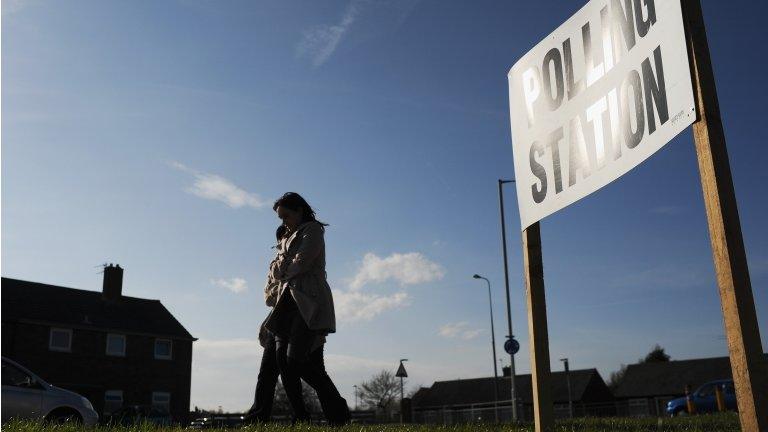Nick Clegg: I agree with critics of the Recall Bill
- Published
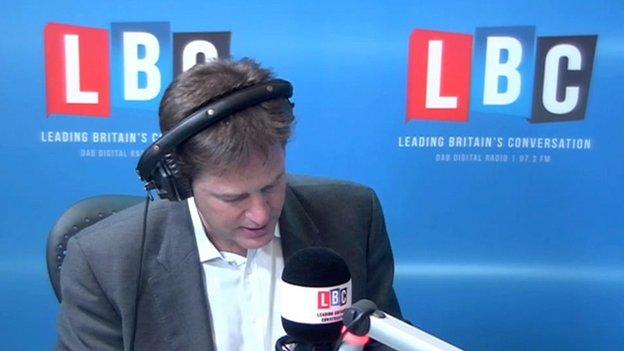
Deputy PM Nick Clegg says he agrees with Zac Goldsmith and other critics of his government's proposals to give people limited powers to kick out MPs.
Mr Goldsmith, a Tory MP, said voters were being "duped" by the Recall Bill which proposed a Commons committee having power over the whole process.
Mr Clegg said he had settled for a "modest" version because of "Conservative Party resistance".
Mr Goldsmith accused Mr Clegg of "desperate backtracking", external.
The Richmond Park MP said he wished it was true that the deputy PM was "at one" with him "but it is the opposite of the truth... Nick Clegg is the architect of the current Recall Bill".
The bill was unveiled in the Queen's Speech after years of delays and wrangling between coalition ministers.
The measure was promised in the coalition agreement between the Conservatives and the Lib Dems in 2010.
It was seen as part of moves to restore faith in politics after the 2009 expenses scandal.
Zac Goldsmith: "It's worse than meaningless, it's a pretence"
Under the Recall of MPs Bill, constituents would be able to sack their MP if they are sentenced to up to 12 months in jail. MPs are already removed if they are jailed for more than a year.
Voters could also trigger a by-election if the House of Commons resolves that an MP has engaged in "serious wrongdoing". A by-election would be forced if more than 10% of constituents signed a petition over an eight-week period after the Commons ruled an MP could face recall.
The government said the move would give constituents a direct voice when MPs have behaved badly - but Mr Goldsmith said the final say would still rest with a committee of MPs, meaning it would not be true recall as it is understood in other countries, where any politician can be recalled if a certain proportion of their constituents sign a petition.
Then most famous case of recall being used was in California in 2003, when more than the necessary 12% of voters signed a petition to cause a recall vote that led to Gray Davis being replaced by actor Arnold Schwarzenegger.
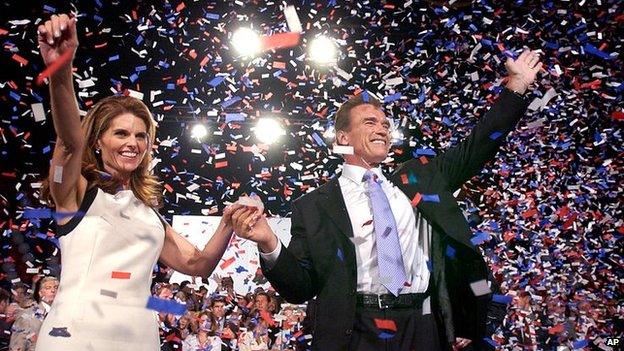
Mr Clegg was asked about the criticism of the new bill during his regular LBC phone-in.
He said "Zac and I are completely at one" in wanting what he called "a radical California-style recall".
But he said it had "absolutely no hope at all of being passed into law because of profound objections" from Conservative colleagues.
Mr Clegg said he had had to "battle day and night to get even this modest recall measure agreed in the Queen's Speech against Conservative Party resistance".
He said he was a practical man and wanted to get something into law in line with the coalition agreement.
Justice Secretary Chris Grayling was asked on BBC Radio 4's Today programme whether he would be willing to have a rethink of the recall plans.
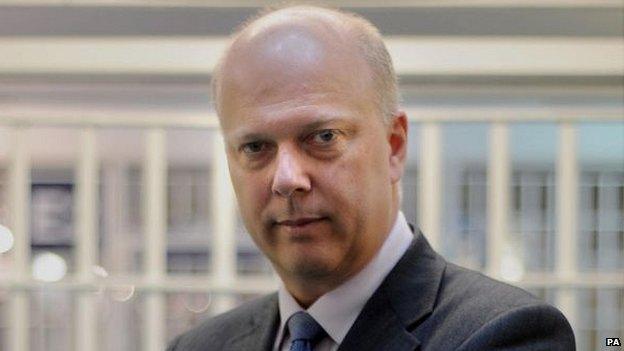
Chris Grayling says there are good reasons why recall powers are limited
He said there would be debates in Parliament and "Zac might win people to his argument".
But Mr Grayling said the bill was designed to tackle MPs who had "significantly broken the rules" or committed acts which had led them to be sent to prison.
"What it is not meant to be is an opportunity for political opponents halfway through a parliament to get a petition together because they don't like their politics. We are all elected, rightly or wrongly, for five years."
He added: "A member of parliament in a government which is taking difficult and unpopular decisions should not be subject to recall for purely political reasons."
The recall plans were designed to be a mechanism to allow electors to say "you're out" if you have done something "fundamentally wrong", he said.
Nineteen MPs from across the political spectrum have signed a Commons motion backing Zac Goldsmith's call for tougher powers, including Tory MPs Douglas Carswell and David Davis, Labour members Kate Hoey and Frank Field and Lib Dem Julian Huppert.
- Published4 June 2014
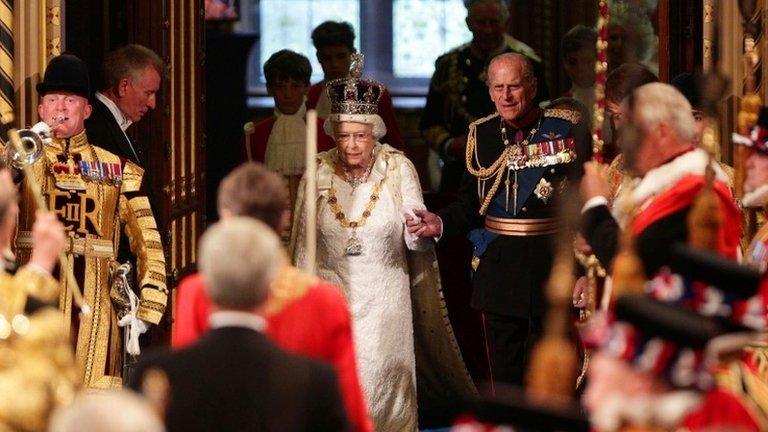
- Published14 February 2014
